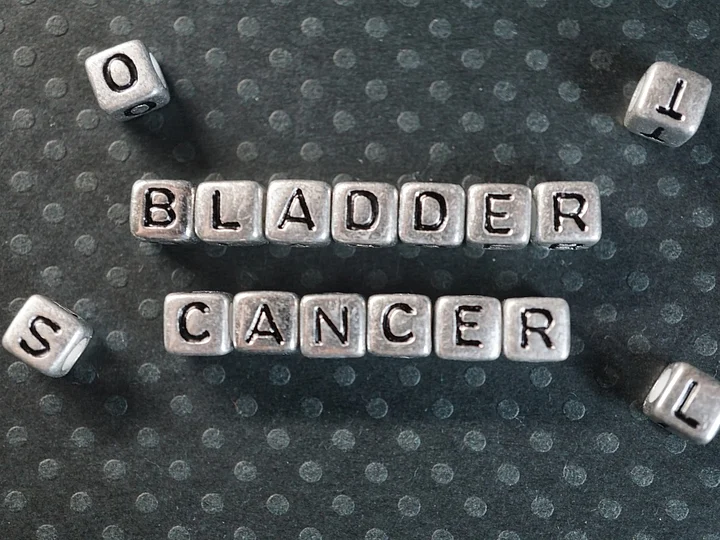Bladder cancer is the type of cancer that arises in the tissues of the urinary bladder. The bladder is a hollow, muscular organ in the lower abdomen that collects urine from the kidneys through the ureters for storage. The urine is eventually removed from the body through the urethra.
Bladder cancer is a disease in which cells grow abnormally and have the potential to spread to other parts of the body. Bladder cancer is more prevalent in men than in women and usually affects older adults, though it can happen at any age.
Different cells in the bladder can be cancerous and the type of cancer depends on the type of cell where cancer begins. Let's know more about the types, causes, symptoms, diagnosis, and treatment of bladder cancer.
Bladder Cancer: Types
Transitional Cell Carcinoma: This type of cancer begins in the transitional cell that lines the inner layer of the bladder. It is the most common cause of bladder cancer. These same cells line the inside of the ureter, kidneys, and the urethras. Therefore, tumours can form in those places as well. Thus, an individual with transitional cell cancer of the bladder is at risk for transitional cell cancers of the kidneys or ureters.
Squamous cell carcinoma: This type begins when flat squamous cells form in the bladder and result in chronic inflammation or irritation that has taken place over the months or years. About 1% to 2% of bladder cancer is of this type.
Adenocarcinoma: This type begins in the cell that makes up mucus-secreting glands in the bladder.
Bladder Cancer: Causes
Doctors know that bladder cancer occurs when something triggers a genetic mutation within the cells in the bladder. This causes normal cells in the bladder to become abnormal and multiply rapidly so that they can continue to accumulate, forming a tumor. Certain risk factors that can increase the chances of bladder cancer include :
Smoking tobacco or cigarettes
Occupational exposure to certain chemicals
Increase in age
Having a family history of bladder cancer
previous cancer treatment
Chronic bladder inflammation
Bladder Cancer: Symptoms
According to the American Cancer Society, symptoms of bladder cancer may include:
Painful urination
Pelvic pain
Blood in the urine
Pain in the lower back
Frequent urination
Urgent urination
Burning sensation during urination
Urge to urinate but not being able to urinate
Bladder Cancer: Diagnosis
The condition may be diagnosed with one or more of the following options:
Urinalysis: A test that can confirm if there is bleeding in the urine and can confirm if there is an infection. It is usually one of the first tests suggested by the doctor.
Cystoscopy: This involves inserting a small narrow tube or cystoscope through the urethra. The lens of the cystoscope allows the doctor to see the inside of the urethra, and bladder or examine them for the signs of another disease.
A biopsy in which a doctor might insert a small tool to take the sample of the cells with a test in the lab.
Urine cytology involves taking a sample of your urine to check for cancer cells.
Imaging tests such as CT scan or retrograde pyelogram allow the doctor to examine structures of the urinary tract.
Bladder Cancer: Stages
Stages of the cancer are determined on the basis of how far the cancer has spread. This will help the doctor to determine the best treatment option. Tests such as chest X-ray, CT scan, and blood test can be used to determine your cancer stage:
At stage 0, cancer is confined to the lining of the bladder.
At stage I, cancer has spread past the lining of the bladder but has not reached the muscle of the bladder.
At stage II, cancer has reached the muscle of the bladder
At stage III, cancer has spread to the tissues surrounding the bladder.
At stage IV, cancer has spread past the bladder and has spread to the neighboring areas of the body.
Bladder Cancer: Treatment
The stage of cancer, your general health, and your preference will determine the treatment of bladder cancer. Treatment options may include surgery to remove a whole or a part of the bladder, often called a cystectomy.
Doctors might also undergo surgery to remove the inner layers of the bladder. This procedure is called transurethral resection of bladder tumor (TURBT).
Another common treatment option is radiation therapy which uses powerful energy beam such as X-rays to kill the cancer cells.
Immunotherapy, also called biological therapy, works by signalling your body's immune system to fight cancer. One such immunotherapy drug for bladder cancer is Bacillus Calmette-Guerin (BCG).
Chemotherapy involves using medications which are injected intravenously or taken orally to kill the cancer cells

